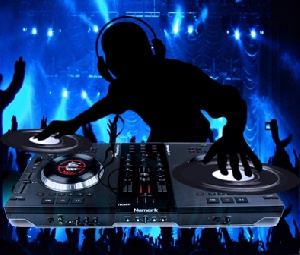This piece is purposely to question radio disc jockeys and presenters on why they have allowed money to rule their work to this extreme extent. I believe every music lover who monitors music played on radio ten years ago will attest to the total change and sequence in the kind of music you hear on radio.
Not more than eight years ago, Doreen Andoh of Joy 99.7 FM poured out her anger on colleague radio presenters to avoid taking ‘Payola’ and I am one of the few young chaps who understood the pressure and back lash she faced for that statement during an interview.
Undoubtedly, Payola is not an entirely new phenomenon in the world and precisely Ghana where we have new music talents coming up every day. Music is one of the numerous gifts God has dashed out to Ghana at no cost.
However, Ghanaians always have their very perfect way of treating things done worldly differently. We found ourselves in a country where the future of paying royalties to musicians is intensely blurred.
The fundamental structures are not encouraging and neither the front liners are sure of its prospect. Government, also on its part seems to be watching elsewhere yet the cost of producing music is sky rocking on daily basis.
The instance has budged from the era where radio stations had regulations that instructed Disc Jockeys and presenters the kind of music to play is no more working, currently, individual radio personalities decides what to play. Indeed, Money and gifts are the driving force.
The weight of the money drawn into the DJs pocket, determines the number of times he will play and repeat a particular song. It doesn’t matter whether the content of the song is good for radio play or not, contributing largely to the increasing value of poorly produced sounds we have on our airwaves.
Majority of the radio DJs have failed over the years for not refusing to reject poor productions that are handed to them by promoters and managers and sometimes the artistes themselves. Money is indeed a necessary evil but cannot be allowed to ruin the career of those who have the potential. It is very sad to hear someone say DJs are killing the game.
We have situations where listeners even send in requests for songs to be played on a radio show but what presenters do is to flip over them in the name of not listing it in his playlist. Most of these presenters already have a lineup playlist of their favorite artistes they promote and this reminds me of the message in Stonebwoy’s ‘No Sir’.
In that song he stated categorically that “presenters should not sit down for things to get bitter because music is their life and future” but who is ready to join the advocacy today?
We also have situations where some record labels have signed contract with some radio DJs and presenters to play music from their artistes on daily basis and at the end of the month, their bank accounts are being credited with whooping sums of cash. The proposal may sound good but unprofessional but the presenter at this point will play the song irrespective of its proficiency.
DJs and presenters today will call managers or whoever sends them songs via Email or WhatsApp (which is the most common way some artiste promote their songs) to them immediately after their show for ‘something’ in return. With this behavior depicted by these supposed role models, is just not good and it also prevent some good musicians from getting the platforms to get their songs heard.
The internet is becoming a dominant platform for promoting music but it comes with its challenges. Club DJs and mobile DJs cannot be left out of this Payola living. It is becoming more of whom you know.
The best way to go now is to seek some lasting interventions through formation of legal bodies and associations that will direct the affairs of both partners at this moment.
I call on the National Media Commission; Ghana Music Council should come to a consensus on how music should be promoted on radio at least it will reduce the unnecessary exploitation of music managers, promoters and artistes.
Entertainment of Saturday, 8 February 2014
Source: Afia English













